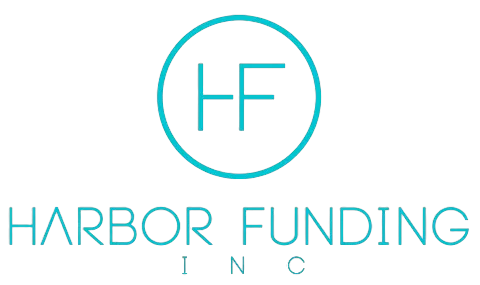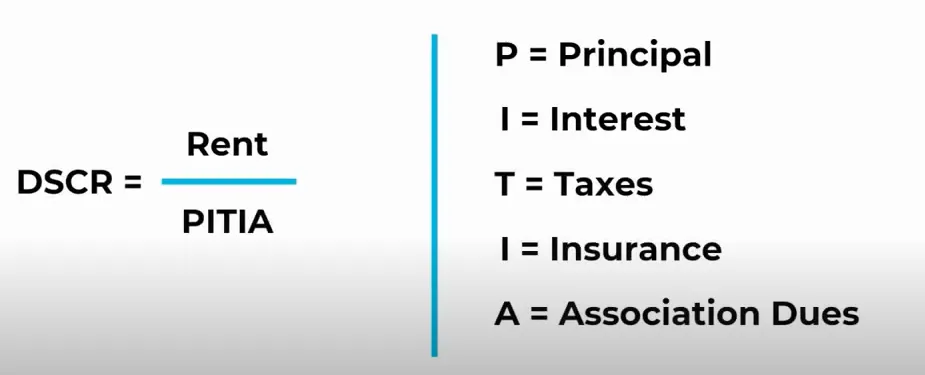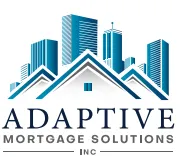Talk To - call

Talk To a Mortgage Advisor Now!
619-940-1953
Debt Service Coverage Ratio: No-Income Mortgage Loan
Designed for Real Estate Investors
Qualify Based on Rental Income Only!
No Personal Income Needed to Qualify!
Interest Only Options Available!
Fund Into Corporation or LLC
No Pre-Pay Options
AirBnB's Allowed
Answer a Few Quick Questions and Speak with a DSCR Loan Specialist Today!
What to look for in a DSCR Lender
6 Things to Look for in a DSCR Lender
When you're searching for a Debt Service Coverage Ratio (DSCR) lender or mortgage broker, it's crucial to select someone familiar with investors' needs. Here, we'll break down the essential qualities to consider when choosing a DSCR lender to ensure you land on the right loan product.
1. Experience with Investors
Not all lenders understand the specific requirements of investors. Work with a broker who regularly assists investors. This ensures they'll place you in the right type of loan. For example, I collaborate with over a hundred DSCR lenders but typically recommend loans from just four or five.
2. Flexible Credit Score Requirements and Loan Amounts
Credit scores can be a hurdle for many investors. Some DSCR lenders accept lower credit scores, such as 620. Others may only cater to clients with higher credit scores. Similarly, some lenders offer loans starting from $75,000, while others have a minimum threshold of $150,000 or more. Selecting a lender who understands these variations is key.
3. Debt Service Coverage Ratio Flexibility
A crucial metric in securing a DSCR loan is the ratio itself. Ideally, you want a lender who offers options for ratios below one. For instance, if your projected rental income is $950 but your housing payment is $975, you're in negative territory. Without a below-one ratio option, you could waste money on an appraisal and fail to secure financing.
4. Understanding and Managing Ratios
Expert loan advisors help you manage various factors that affect your DSCR ratio, such as property taxes, insurance costs, and association dues. These expenditures can sometimes be substantial enough to make a property unviable. Hence, an experienced broker will verify that the ratios work out based on accurate property tax and rent projections.
5. Competitive Rates and Fees
One of the best ways to secure favorable terms is by shopping around. As a mortgage broker, I use a pricing engine that factors in various parameters like credit score, property type, location, down payment, and loan amount to provide a comprehensive list of lenders and their rates for your scenario. This competitive analysis allows me to offer the best rates and fees.
6. Transparency
Transparency is vital. Ensure the lender is upfront about all costs, including any prepayment penalties. DSCR loans can come with varying prepayment penalties from none up to five years. A penalty impacts your loan by preventing refinancing without incurring fees, which is a significant factor to consider in a high interest rate market.
10 QUESTIONS TO ASK EVERY DSCR LENDER
1. What are you using for the DSCR to Quote this Rate?
The Debt Service Coverage Ration that the lender uses will impact the rate you will qualify for.
Lenders have loan level price adjustments and each piece of information will impact that lenders rates. Some lenders are more conserviative than other, so they may have a larger adjustment to the rate for a 1:1 ratio than another DSCR lender.
Typical ratio buckets would be:
1.5+
1.25 - 1.49
1 - 1.24
.75 - .99
No Ratio
1.5 ratio would mean that for every $1,000 you pay in the housing payment, you are receiving $1,000 in rent.
1:1 ratio would mean that the amount you receive in rent each month is equal to the total housing payment. This would be riskier to the bank, so they would make a rate adjustment to take on this additional risk.
2. What credit score are you using to quote this rate?
The credit score that the lender uses will impact the rate you will qualify for.
Mortgage lenders will pull the 3 major credit bureues Experian, Transunion and Equifax and most lenders will use the middle score of the lowest borrower. However, some DSCR lenders will use the middle score of the highest borrower, so it's important to ask because its one of the largest impacts on the rate you will qualify for.
Borrower will fall into different credit buckets. The higher the credit the better the rate you will qualify for.
Typical credit buckets for lenders would be:
780+
760 - 799
740 - 759
720 - 739
700 - 719
680 - 699
660 - 679
This means everyone with a credit score between 700 and 719 fall into the same credit rate adjustment. Each lender will have their own adjustments and minimum credit scores based on their risk tolerance.
3. Is there a pre-payment penalty?
Most DSCR loans have a pre-payment penalty up to 5 years, so it's extremely important you ask the DSCR lender or mortgage broker if the loan or rate they are quoting or offering comes with a pre-payment penalty.
A prepayment penalty is a contractual clause that states the borrower is going to pay the lender an additional fee if the borrower pays the loan off early. This would include refinancing, so its critical to know what you are locking yourself into.
A common prepayment penalty structure is called a step down or 5/4/3/2/1 structure. This means that if the borrower pays off the loan in year one, they have a 5% prepayment penalty of the remaining loan amount, in year two, a 4% prepayment penalty, and so forth.
If your prepayment penalty structure is a 3/0/0, it means that in the first year you pay a 3% fee, and then the penalty goes away after that. The reason the term "penalty" is not accurate is because it does not necessarily impact your DSCR loan. For instance, investors looking to hold onto their properties long-term are not impacted by the prepayment penalty. Investors who want more flexibility can take a higher interest rate or pay a fee to get rid of the prepayment penalty entirely.
4. What is the underwriting, processing, and origination fee?
Mortgage lenders fees can vary when it comes to underwriting, processing and origination.
Most DSCR lenders charge an underwriting fee between $1,000 - $1,695
Processing fees are not always charged, but a typical processing fee is $795 with many lenders.
Origination fees are not always charged.
If you are working with a broker you will want to know what their fee will be for helping facilitate the loan.
5. Is the lender charging discount points for this rate?
Discount points are essentially mortgage interest that you pre-pay upfront at closing.
Typically, one point costs 1% of the total mortgage, and permanently lowers the interest rate anywhere from 0.125% to 0.25%, depending on the type of mortgage.
One lender may quote a rate and not mention any discount points, but they may be quoting a rate that has addition fees, so make sure you ask!
It's important to remember that your rate or discount for the rate quoted can change if you do not lock the rate of your loan, so make sure you lock your rate if you do not want to risk the fees or rate going up.
6. What are the total fees in section A of the loan estimate?
When you are buying a home or refinancing you can choose your title company and their fees do not change lender to lender.
The place where lenders will vary is in the fees they charge in section A of the loan estimate under origination fees.
If you plan on using the lenders or brokers preferred title company, then you will want to get a fee sheet to compare those fees as well.
7. When can I lock the rate?
It's important to remember that your rate or discount for the rate quoted can change if you do not lock the rate of your loan, so make sure you lock your rate if you do not want to risk the fees or rate going up.
Some DSCR lenders allow you to lock the loan once it is registered and they have a completed loan application, but others may require an initial approval or an appraisal to be completed before you can lock your rate.
8. Will you do a rapid rescore if I could get a better rate?
What is a Rapid Rescore?
A rapid rescore is a tool that helps you improve your credit score quickly. When you click on an increment like plus 20, it reveals the exact steps needed to boost your score and the likelihood of success. This is crucial because your credit falls into specific "buckets" that determine your loan rate. For instance, everyone with a score between 620 and 639 is in one bucket, and those from 640 to 659 are in another.
The Benefits of a Higher Score
Let's imagine your middle score is sitting at 655. By using a rapid rescore to bring it up to 660, you might qualify for a better rate. The difference might seem small, but the savingsare real. A better score can reduce your interest rate, saving you potentially hundreds of dollars each year and thousands over the life of the loan.
Why some Lenders and Brokers don't offer Rapid Rescores
Most lenders don't mention rapid rescores because they can't charge you for it. However, the process does incur a cost. This technique is different from simply paying down a credit card and waiting for the credit bureaus to update your score. With a rapid rescore, you pay down the debt as instructed, provide the necessary documentation, and typically see a score increase within three to five business days.
Step-by-Step to Faster Results
Here's how it works:
Pay Down the Debt: Follow the specific steps recommended by the rapid rescore tool.
Submit Documentation: Provide the necessary proof to your lender.
Wait for the Update: Within three to five business days, the bureaus will update your score.
Recalculate Your Score: Your lender can now use the improved score to qualify you for a better rate.
Improving your middle score from 655 to 660 might seem minor, but the rate reduction can add up, offering substantial savings over the initial years of your loa
9. Will the DSCR interest rate change if you close in a LLC?
Some lenders charge a fee for closing your DSCR loan in an LLC or Entity.
The tricky part is that its not itemized. It's a fee that is built into the rate itself.
For example, lets say you have a $300,000 loan and they tell you the cost in discount points for that rate is .5, so $1,500. A portion of that .5 cost or $1,500 might be for closing in an LLC.
Many lenders do not have a fee for closing in an LLC, so always ask, "Is there a difference in my rate or the cost for the rate if I close in an LLC?"
10. How does your down payment affect your DSCR interest rate?
A larger down payment typically leads to a lower interest rate on a DSCR loan because it reduces the loan-to-value ratio, signaling lower risk to the lender. Additionally, a higher down payment can improve the DSCR by reducing the loan amount, which lowers the debt service required.
Typical loan-to-value buckets for lenders would be:
75.01-80 LTV
70.01-75 LTV
65.01-70 LTV
60.01-65 LTV
50.01-60 LTV
<=50 LTV
This means a property with a loan-to-value between 70.01 and 75 will fall into the same rate adjustment. Each lender will have their own adjustments and minimum credit scores based on their risk tolerance.
Who is the Best DSCR Lender?
Who is the Best DSCR Lender?
When it comes to finding the best Debt Service Coverage Ratio (DSCR) lender for your investment property, there is no one-size-fits-all answer. The "best" lender often depends on a variety of factors including the type of property, your credit score, and whether you plan to rent the property long-term or short-term.
Some lenders do not allow certain property types like condotels or have great rates, but require a minimum 1.25 debt service coverage ratio.
As a broker I have a pricing engine that allows me to put in the exact specifics of the property and borrower and it will show who will provide the best rate for that particular situation.
Some of the DSCR lenders that I work with on a regular basis are:
What is the DSCR Formula?
What is the DSCR Formula?
When investing in real estate, understanding the Debt Service Coverage Ratio (DSCR) is crucial for assessing whether a property will qualify for a loan. Lenders use the DSCR formula to evaluate the cash flow available to cover property debt, making it a vital metric for potential investors. In this blog post, we will walk you through the DSCR formula, its components, and how to use it to assess your investment properties effectively.
What is the DSCR Formula?
The DSCR formula is a straightforward calculation used primarily in residential and commercial real estate to determine the property’s ability to cover its debt obligations.
For residential properties (one to four units), the formula is:
Monthly Rent / PITIA = DSCR
PITIA stands for Principal, Interest, Taxes, Insurance, and any Association dues. If there are no association dues.

What are the rates on DSCR loans?
What are the rates on DSCR loans?
Rates for DSCR loans are typically about one and a half to 2 percent higher than those for conventional investment loans. Let's explore why this is the case and whether a DSCR loan might be the right choice for you.
Why are DSCR rates higher than conventional loans?
DSCR loans are designed to measure the cash flow of an investment property in relation to its debt payments. The primary reason DSCR loan rates are higher is the increased risk to the lender. Unlike conventional loans, DSCR loans do not qualify the individual based on their personal debt-to-income ratio. This means that if tenants are not able to make rent payments, the lender is at a greater risk of the loan defaulting.
For example, with a conventional investment loan, the lender considers whether the individual can afford to make the housing payments even without rental income. DSCR loans, on the other hand, focus solely on the property's ability to generate enough income to cover the loan payments. Therefore, if the property experiences vacancies, the lender faces a higher risk, which is why the rates are higher.
The Benefits of DSCR Loans:
Despite the higher rates, DSCR loans offer several advantages for investors:
Faster Approval Process:
The process to get pre-approved for a DSCR loan is typically quicker, meaning you can secure your financing and close on your investment property faster.
Flexible Ownership Options:
DSCR loans can be placed in an LLC, providing additional flexibility and potential tax benefits.
Streamlined Qualification:
Since these loans are based on the property's cash flow rather than your personal income, the qualification process can be less stringent.
Each investment scenario is unique, and the best loan option for you will depend on your specific circumstances. If you meet the qualifications for a conventional investment property loan, that might be your best route due to the lower rates. However, if speed and ease of acquisition are higher priorities, a DSCR loan may be more advantageous.
7 Factors Lenders use to Calculate DSCR Rates
What are the 7 Factors Lenders Use to Calculate Your DSCR Interest Rate?
When seeking a DSCR (Debt Service Coverage Ratio) loan, it is essential to understand the factors lenders use to determine the interest rate they are willing to offer. Here are the seven major factors that could influence your DSCR loan rate:
1. Loan to Value (LTV)
The Loan to Value ratio compares the property value or appraised value to the loan amount. For instance, if your property is valued at $200,000 and you have a loan of $150,000, the LTV would be 75%. As the LTV approaches 100%, the risk to the lender increases, resulting in a higher interest rate. Most lenders will loan up to 80% on a purchase, with some extending to 85% if your credit score is 720 or higher. The minimum down payment is largely driven by your credit score.
Typical loan-to-value buckets for lenders would be:
75.01-80 LTV
70.01-75 LTV
65.01-70 LTV
60.01-65 LTV
50.01-60 LTV
<=50 LTV
This means a property with a loan-to-value between 70.01 and 75 will fall into the same rate adjustment. Each lender will have their own adjustments and minimum credit scores based on their risk tolerance.
2. Credit Score
Your credit score is a critical element in determining the rate. Some lenders may approve loans for credit scores as low as 600 but will require a much larger down payment, often around 35%. Typically, lenders prefer a credit score of 680 or higher to allow for as little as a 20% down payment on a DSCR loan.
3. Loan Purpose
The purpose of the loan—whether it's for a purchase or a refinance—affects the interest rate. If it's a refinance, lenders also consider whether it's a rate and term refinance or a cash-out refinance. Cash-out refinances often have higher rates because they present more risk to the lender, suggesting the borrower needs cash. Therefore, the amount of money you wish to pull out will affect the rate you qualify for.
4. Property Type
Lenders consider the type of property being financed. A single-family residential home is deemed the safest investment, whereas multifamily homes (two, three, or four units), condos, condo-tels, and townhouses might come with varying interest rates. These property types can influence your interest rate depending upon their perceived risk.
5. Prepayment Penalty
DSCR loans often come with prepayment penalties, ranging from no penalty at all to penalties extending up to five years. The longer the prepayment penalty period, the less risk there is to the lender, which can result in better terms and interest rates. However, a longer prepayment penalty period can pose significant constraints, so carefully consider your options here.
6. Investor Experience
Lender terms can also be influenced by whether you are a first-time investor or have experience. Experienced investors who currently own rentals or have successfully flipped properties in the past 18 months may find better rates. First-time investors may still find lenders willing to work with them but often face slightly higher rates due to the increased risk.
7. DSCR - Ratio
The DSCR ratio itself is perhaps the most significant factor. Lenders look at the ratio of rents or projected rents to housing payments, which includes property taxes, insurance, and association dues. A 1:1 ratio (or 1.15) is typically the baseline, resulting in higher rates if the DSCR ratio is at its minimum standard. Conversely, a ratio of 1.5 or higher often yields better rates.
Understanding Par Rate and Discount Points
You don't qualify for just one rate but for a par rate—the base rate offered without paying discount points. Discount points allow you to lower your interest rate by prepaying interest. It’s crucial to calculate the benefit of this based on your projected holding period for the property. If the cost to buy down the rate doesn't pay off before you sell or refinance the property, the discount points might not be worthwhile.
Navigating DSCR loan interest rates requires a thorough understanding of these factors. Collaborating with a knowledgeable mortgage broker can help you evaluate all your options and make an informed decision tailored to your investment goals. If you have specific scenarios or questions, feel free to reach out for personalized advice and loan options.
What are the DSCR Loan Requirements?
The factors that will impact if your DSCR loan will be approved are the following:
What is the Minimum Credit Score Requirement for a DSCR loan?
Credit score requirements for DSCR loans can vary significantly among lenders. Some lenders may be lenient and accept a minimum credit score of 620, while others may require a higher score of 660 or even 700. It’s essential to know where you stand before approaching different DSCR lenders.
Impact of a Higher Credit Score
Having a higher credit score generally positions you better for more favorable loan terms. For instance, lenders who accept lower credit scores typically offset this with higher down payment requirements or more stringent loan-to-value (LTV) ratios. Conversely, borrowers with higher credit scores may benefit from lower down payments, better interest rates, and more lenient approval processes.
Credit Score Tiers Among Lenders
Different DSCR lenders categorize credit scores in tiers:
620-659: Generally considered subprime, borrowers may face higher interest rates and stricter loan terms. The maximum LTV in this tier is often 75%, meaning a 25% down payment is required.660-699: Falling into this range might offer more options, but lenders still might implement conservative loan terms. The down payment requirement can be between 20-25%.
700 and above: Borrowers in this tier will likely receive the most favorable terms, including lower interest rates and down payments potentially as low as 15%.
For example, one lender might require a first-time investor to have a credit score of at least 700, whereas another might be flexible down to 660 but offer higher loan costs as a trade-off. It's vital to scrutinize these differences and understand how they impact your particular situation
What are the Eligible Property Types for DSCR loans?
Single-Family Homes
Multi-Family (1 - 4 Units)
Condos - Warrantable and Non-Warrantable
Condotels
Modular
Multi-Family 5+ Units
Residential 5 – 8 Units
Mixed use 2 – 8 Units o Commercial usage limited to Retail/Office*
*2-3 Units: Max 1 commercial Unit
*4-5 Units: Max 2 commercial Units
*6-8 Units: Max 3 commercial Units
*Commercial space must not exceed 49% of the total building area
STEP 1
Apply Online or Call Directly
Find out how much home you can buy or discover how much you can save by refinancing.
STEP 2
Review What You Can Qualify for Options
Learn your learn exactly how much you qualify for and what you would save by working with Harbor Funding Group.
STEP 3
Get Loan Approval in 24 Hours
Get mortgage loan approval to move forward with your property.
Get In Touch
4883 Ronson Court, Suite A, San Diego, CA 92111
License Info
Company NMLS: 1862063
Approved States:
AR, AZ, CA, CO, FL, IA, ID, IL, MD, MI, NJ, OH, OR, PA, SC, TN, TX, VA, WA, WY
Powered By

This offer is not guaranteed if you do not meet our criteria, including credit worthiness, insurability or ability to providing acceptable property as collateral. Terms and conditions apply. Programs, rates, terms and conditions are subject to change and are subject to borrower(s) qualification. This is not a commitment to lend. The content in this website has not been approved, reviewed, sponsored or endorsed by any department or government agency.
By submitting your phone number you are providing express written consent for us and our affiliates, agents, and service providers to contact you at the email provided as well as the number provided regarding products or services, including via autodialed and/or prerecorded or artificial voice calls and texts and that this consent will persist indefinitely until you request a cease in contact which can be made by phone, email or text. You may opt out of text messages or email at any time by reply with the word STOP.
